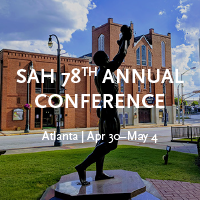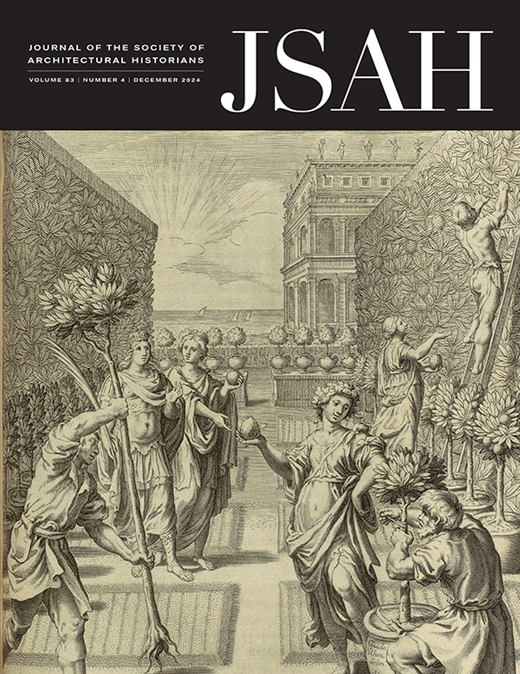PUBLIC Journal has published an article by SAH member, Adnan Morshed. PUBLIC Journal provides a platform for the expanding Public Interest Design Movement; where the world of architecture intersects with the voices of activism, exposing a determination to provide good design for those that need it most, but most often, do not get it. PUBLIIC Journal is based in Long Beach, California.
Recently I had the good fortune of being in Paris, a city of unending intrigues. I noticed an extraordinary phenomenon unfolding around the Eiffel Tower during a casual afternoon stroll. The “sans-papiers”—as the undocumented migrants are known in local parlance—vended touristy souvenirs around the Champ de Mars, Place du Trocadéro, and the Palais de Chaillot. They often played hide-and-seek games with the police to avoid detection. Struggling migrants from Africa—or more specifically from such countries as the Republic of Congo, Côte d'Ivoire, Chad, Mali, Senegal, Eritrea, and Niger—these vendors live a shadow life in Paris and survive in a particular type of parallel underground economy of the city’s tourism industry. Curiously, they sell mostly one product: miniature replicas of the Eiffel Tower. Their surreptitious economic footprint wraps around Gustave Eiffel's soaring tower, built in 1889 to commemorate the centennial of the French Revolution.
Here is the great irony. The sans-papiers—whose best self-defense in a hostile environment, one would imagine, is to be socially invisible—make a living peddling the most visible, conspicuous architectural icon of Paris. Many of them cross the Mediterranean Sea in rickety boats risking their lives, gradually move from different port cities to the cultural and economic heart of France, and, finally, occupy a social space that accidentally conflates two most unlikely global conditions: the migrant’s unstable, floating life and architectural monumentality within the transient space of global tourism. The story doesn’t end there. The miniature Eiffel Towers are made in China. The socially invisible migrant sells the most visible architectural trope of French cultural chauvinism to tourists from across the world.
The state system seems to tolerate the sans-papiers as long they are humanoid silhouettes, not real people with real names, real addresses, real families, and personal histories. Always at the mercy of the state’s shifting migration politics and the focus of many worried gazes, they are the spectral protagonists of a global narrative, one in which Europe, Africa, and Asia converge at the foot of a wrought-iron tower.
Read complete article here.
Adnan Morshed has been an SAH member since 2000.


